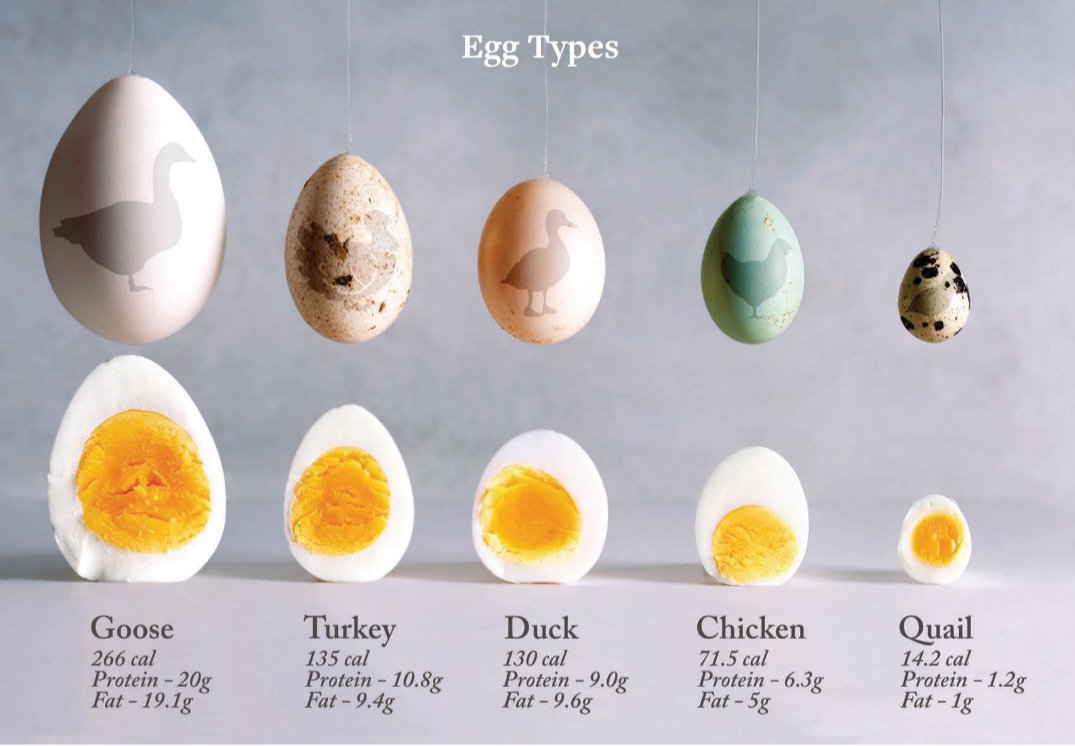Eggs
Eggs are one of nature’s most complete foods and a superfood for dogs, offering an affordable and nutrient-packed addition to their diet. From their rich protein content to joint-protecting eggshell membranes, eggs are a versatile and beneficial choice. Here’s everything you need to know about safely feeding eggs to your dog.
Why Are Eggs a Superfood for Dogs?
Eggs are often referred to as nature’s multivitamin because they deliver high-quality protein, essential fatty acids, and a wide range of vitamins and minerals.
Complete Protein Powerhouse
Eggs have the highest biological value of any protein, meaning dogs can easily absorb and utilize the nutrients. They also provide all 10 essential amino acids that dogs need for muscle repair, growth, and overall health.
Key Nutrients in Eggs
• Vitamin A: Improves skin and coat health.
• Vitamin D: Enhances calcium absorption, critical for strong bones and teeth.
• Vitamin E: A powerful antioxidant protecting cells from damage.
• B Vitamins: Boost energy and support the nervous system.
• Choline: Supports brain health, fat metabolism, and memory.
Eye-Health Benefits
Egg yolks are rich in lutein and zeaxanthin, antioxidants that protect against eye conditions like cataracts and retinal degeneration.
Health Benefits of Eggs for Longevity
Eggs are rich in choline, a key nutrient for brain health and cognitive function. Regular egg consumption can support neurotransmitter production and help prevent age-related cognitive decline (sometimes called “doggy dementia”).
Protein topper value comparison
Can Dogs Eat Raw Eggs?
Raw eggs are an excellent source of nutrients like omega-3 fatty acids, vitamin D, and antioxidants. However, they contain avidin, a protein in the whites that binds to biotin (vitamin B7) and can lead to deficiency if consumed in excess.
Biotin Deficiency: Should You Worry?
Egg yolks are rich in biotin, effectively balancing the avidin in the whites. Feeding whole eggs (raw whites and yolks together) ensures your dog gets plenty of biotin. Additionally, biotin-rich foods like liver can supplement your dog’s diet.
Enzyme Inhibitors in Eggs: Are They Harmful?
Raw egg whites contain enzyme inhibitors that may interfere with digestion, particularly in puppies, senior dogs, or those with compromised health. However, for most healthy dogs, this is not an issue when eggs are part of a varied, balanced diet.
If you’re concerned, start with small amounts of egg and monitor your dog for any digestive upset. Cooking the egg whites can deactivate these inhibitors, but it also reduces some nutrients. For maximum benefits, feed eggs raw if your dog tolerates them well.
Can Dogs Eat Eggshells?
Absolutely! Eggshells are a natural source of calcium and provide critical nutrients for bone health. They also contain a membrane rich in:
• Collagen
• Chondroitin
• Hyaluronic acid
• Glucosamine
These compounds help reduce joint pain and inflammation, making eggshells especially beneficial for senior dogs or those with arthritis.
How to Feed Eggshells
To ensure safety, rinse and bake eggshells at 300°F (150°C) for 5–7 minutes to kill bacteria. Grind them into a fine powder and sprinkle ½ teaspoon on your dog’s food for a calcium boost.
Tip: Avoid using eggshells with grocery store eggs, as they may be sprayed with chemicals. Opt for eggs from local farmers or farmers’ markets.
Best Ways to Serve Eggs
Raw vs. Cooked Eggs
• Raw Eggs: Retain the highest nutrient levels, especially omega-3s and antioxidants.
• Cooked Eggs: Neutralize avidin in egg whites, making biotin more bioavailable, but heat may reduce some nutrients.
Soft-Boiled Eggs: The Best Compromise
Soft boiling preserves most of the yolk’s nutrients while neutralizing avidin in the whites.
How to Soft-Boil Eggs:
1. Bring a pot of water to a simmer.
2. Carefully lower eggs into the water.
3. Simmer for 6–7 minutes (6 minutes for softer yolks).
4. Cool briefly, peel, and serve.
Serving Ideas
• Raw Topper: Crack a raw egg over your dog’s meal for an instant nutrient boost.
• Cooked Treats: Serve soft-boiled or scrambled eggs.
• Frozen Snacks: Freeze raw eggs in muffin tins for a cooling treat.
• Eggshell Powder: Sprinkle over homemade meals for added calcium.
Portion Sizes: How Many Eggs Should Dogs Eat?
While eggs are highly nutritious, moderation is key. Overfeeding can lead to imbalances or weight gain. Here’s a guide based on your dog’s size:
• Small Dogs: ½ egg, 2–3 times per week.
• Medium Dogs: 1 egg, 2–3 times per week.
• Large Dogs: 1–2 eggs, 2–3 times per week.
Types of Eggs: Which Is Best for Dogs?
• Chicken Eggs: The most common choice, nutrient-dense and widely available.
• Duck Eggs: Higher in fat and protein, ideal for active dogs or those needing weight gain.
• Quail Eggs: Tiny and soft-shelled, perfect for small breeds or dogs with sensitivities.
• Other Eggs (Turkey, Goose, Emu): Safe but should be portioned appropriately due to their size.
Are Eggshells a Good Bone Substitute?
Eggshells are a great source of calcium for dogs who can’t chew bones. However, they lack phosphorus and magnesium, essential minerals found in bones. Balance your dog’s diet with other sources of these nutrients.
How to Choose High-Quality Eggs
• Pasture-Raised: Rich in omega-3s, vitamin E, and carotenoids.
• Omega-3 Enriched: Helps reduce inflammation and supports brain health.
• Freshness Test: Place eggs in water—fresh eggs sink, while older ones float.
Conclusion: Eggs Are Egg-cellent for Dogs!
Eggs are a nutrient-dense superfood that can enhance your dog’s overall health, from shiny coats to strong joints and cognitive longevity. Whether raw, soft-boiled, or with the shells included, eggs are a versatile addition to your dog’s diet. Start small, serve in moderation, and always choose high-quality eggs for optimal benefits.




